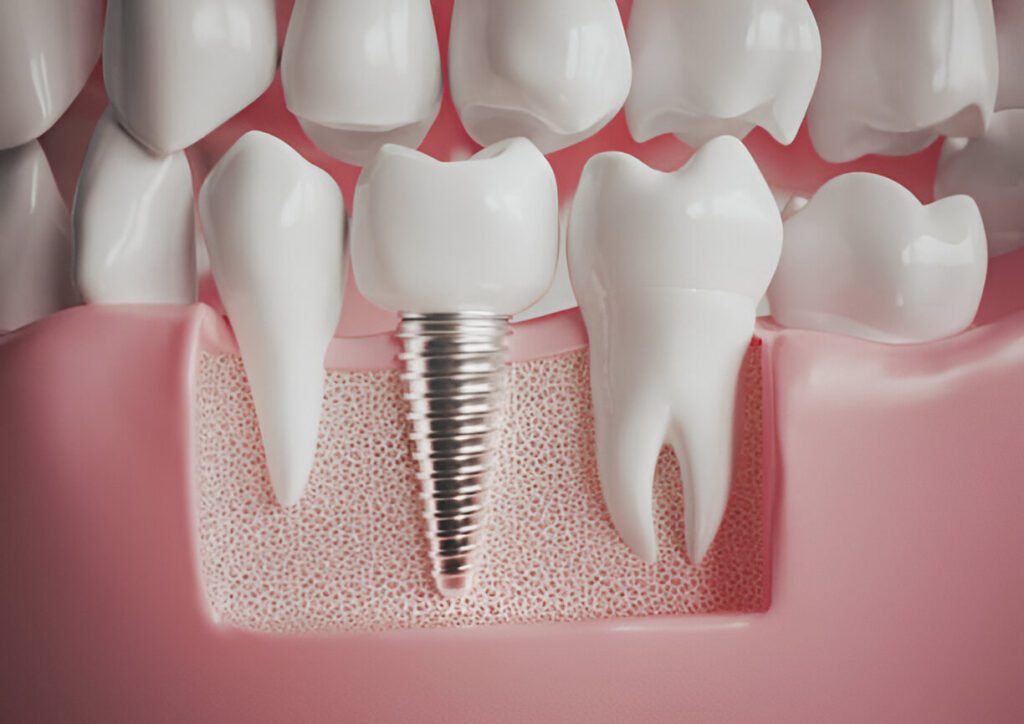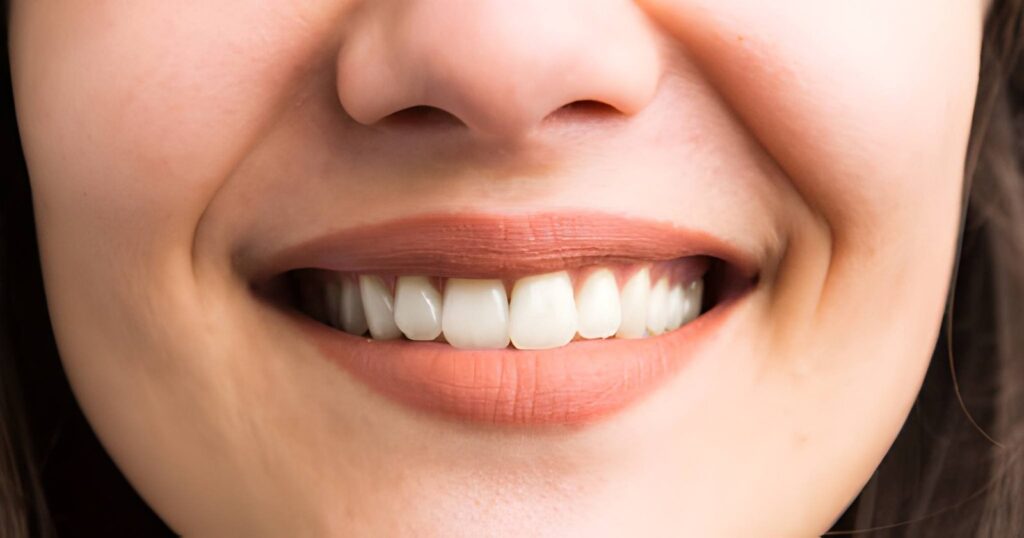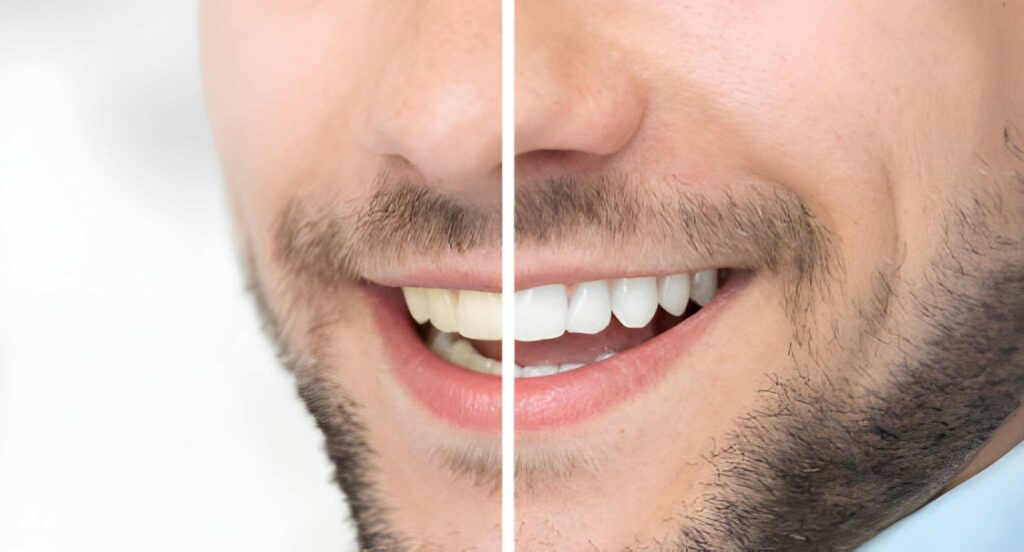Dental implants have revolutionised the way we approach tooth replacement, offering a permanent and natural-looking solution. However, one of the most common questions patients ask is, “What is the best age to get a tooth implant?” While dental implants can benefit people of all ages, determining the ideal time for the procedure requires consideration of several factors. In this article, we will explore the factors influencing the best age for dental implants, the importance of timing, and what alternatives exist for those who may need to wait.
Understanding Dental Implants
Before diving into the age factor, it’s essential to understand what a dental implant is. A dental implant consists of a titanium screw that is surgically placed into the jawbone. This screw acts as a root for a replacement tooth or crown, which is then attached to it. Dental implants are designed to mimic the appearance and function of natural teeth, providing a durable and long-lasting solution. Unlike removable dentures, implants are fixed and can only be removed by a dentist, making them a preferred option for many.
Can You Lose Your Gums Around Dental Implants?
Factors Influencing the Best Age
Growth and Development
The growth and development of the jawbone play a crucial role in determining when to get a dental implant. During adolescence, the jawbones continue to grow, and placing an implant too early can lead to complications. For females, this growth typically completes around the age of 16, while for males, it often continues until around 18. However, individual variations exist, and some people may experience jawbone growth into their early twenties.
Bone Health
Adequate bone density is necessary to support a dental implant. If the bone is too thin or weak, it may not provide the stability needed for the implant to integrate successfully. Younger patients whose bones are still developing may not have the optimal bone density required, increasing the risk of implant failure. On the other hand, older patients may face bone loss due to age-related factors. In such cases, bone grafting may be necessary before placing an implant.
Can NHS Pay for My Dental Implants?
The Ideal Age Range for Dental Implants
Late Teens to Early Twenties
For most people, the ideal time to consider dental implants is in their late teens to early twenties, once growth has ceased. By this age, the jawbone has usually finished developing, reducing the risk of complications related to further bone growth. Placing implants during this period can also help maintain the structure and function of the jawbone, preventing bone loss that often accompanies tooth loss.
Mid-twenties to Early Thirties
Waiting until the mid-twenties or early thirties can offer better long-term aesthetic outcomes, especially for anterior (front) teeth. Studies have shown that the rate of implant submersion decreases significantly after the age of 30. This means the implant is less likely to appear sunken or misaligned over time, ensuring a more natural and harmonious smile.
How Many Teeth Can One Implant Replace?
No Upper Age Limit
There is no upper age limit for dental implants. Older adults can also benefit from implants, provided they have sufficient bone density and good overall health. In fact, implants can greatly improve the quality of life for older patients by restoring their ability to chew and speak properly. However, it’s important to consult with a qualified dentist to assess individual health conditions before proceeding.
Alternative Options for Younger Patients
For patients who are not yet ideal candidates for dental implants due to ongoing growth, several temporary aesthetic options are available. These include:
- Temporary Prosthetics: These can maintain the appearance of a full smile while waiting for the right time for implants.
- Bridges: A dental bridge can replace missing teeth by anchoring to adjacent teeth, providing a non-permanent solution.
- Removable Appliances: Dentures or partial dentures can also be used to fill gaps in the smile until implant placement is feasible.
These alternatives can help younger patients maintain their oral aesthetics and function until they reach the appropriate age for implants.
How Much Are All-on-4 Dental Implants in the UK?
Importance of Professional Consultation
Determining the best age for dental implants requires a personalised approach. It is essential to consult with an experienced dentist who can evaluate your jawbone growth, dental health, and overall medical condition. A thorough examination and possibly imaging tests will help in making an informed decision about the timing of your dental implants. Your dentist will also discuss alternative treatments if you are not yet ready for implants.
Conclusion
The best age to get a tooth implant varies depending on individual factors such as jawbone development, bone health, and aesthetic goals. While late teens to early twenties is generally a good time for many, waiting until the mid-twenties or early thirties may offer better long-term results. There is no upper age limit, and older adults can also benefit from implants. However, it is crucial to consult with a qualified dentist to ensure that dental implants are the right choice for you at any age. Remember, achieving a healthy, confident smile is worth taking the time to make the best decision.
Schedule Your Consultation Today!
Take the Next Step with Holburn Dental and Implant Centre
Are you considering dental implants but unsure if it’s the right time? At Holburn Dental and Implant Centre, our experienced team is here to guide you through every step of the process. We will assess your individual needs, provide personalised recommendations, and ensure that you achieve the best possible outcome for your smile. Don’t wait to restore your confidence—schedule a consultation with us today and take the first step towards a brighter, healthier smile.
How Long Do Dental Implants Last?
Frequently Asked Questions
How long do dental implants last?
With proper care, dental implants can last a lifetime. Regular dental check-ups and good oral hygiene are essential for maintaining their longevity.
Does getting a dental implant hurt?
The procedure is performed under local anaesthesia, so discomfort is minimal. Post-surgery, pain and swelling are temporary and manageable with prescribed medication.
Can smokers get dental implants?
While smoking can affect healing, it’s possible to get implants. Quitting smoking improves success rates and ensures better long-term results.
What are the alternatives if I’m not ready for implants?
Temporary prosthetics, bridges, and removable dentures are viable options to maintain your smile until you’re ready for implants.
Is there an upper age limit for dental implants?
No, there is no upper age limit. As long as you’re healthy and have adequate bone support, implants are a viable option.
How soon after extraction can I get a dental implant?
Typically, there’s a 2-6 month healing period after extraction before implant placement, allowing the bone to heal and integrate with the implant effectively.
For more information click here




